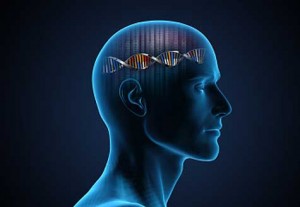 For years, doctors and researchers have wondered why some people developed PTSD (post-traumatic stress disorder) after serious traumatic events and others didn’t. Even in my own patients, some who had experienced significant personal losses, or trauma, didn’t develop the condition. Yet, other patients who had experienced seemingly less-severe incidents went on to develop full blown cases of PTSD. Recently, researchers at UCLA came up with an interesting answer that I’d like to tell you more about. As well, I’d like to share with you some other new research findings that can help you deal with PTSD, and its complications, more effectively.
For years, doctors and researchers have wondered why some people developed PTSD (post-traumatic stress disorder) after serious traumatic events and others didn’t. Even in my own patients, some who had experienced significant personal losses, or trauma, didn’t develop the condition. Yet, other patients who had experienced seemingly less-severe incidents went on to develop full blown cases of PTSD. Recently, researchers at UCLA came up with an interesting answer that I’d like to tell you more about. As well, I’d like to share with you some other new research findings that can help you deal with PTSD, and its complications, more effectively.
Brain Chemical Likely Behind PTSD
Generally, people develop PTSD after traumatic life events – but these can be different for everyone. For one person, it may be something sudden and shocking like a break-in into their house, death of a loved one, experiencing a violent attack or natural disaster. For another person, it may develop from chronically stressful conditions like ongoing mental or physical abuse, serious financial or legal problems, or even poor health conditions. In short, PTSD can be triggered by a multitude of things. It occurs in about 7% of Americans and is a very common health issue in soldiers returning from wars.
PTSD is almost always accompanied by these symptoms:
- Depression
- Sleep disorder – sleeping too much or very little
- Panic attacks and avoidance of places, events that may trigger one
- Anxiety, nervousness, fear of something bad happening
- Emotional numbness or hyper-alertness to danger
- Flashbacks
- Acting out – drinking, taking drugs, other risky behavior
PTSD has typically been thought to be a result of the “fight or flight” survival mechanism that occurs normally when your brain perceives a threat. Your body secretes adrenaline which enables you to either fight back or flee the scene. In the people who develop PTSD though, their adrenaline secretion seems to be on hyper-alert long after the initial traumatizing event has occurred. This can result in adrenal gland dysfunction and burn out. Even little upsets, or memories, anniversaries of events, can set off a full-blown adrenaline response.
This response often results in heart pounding anxiety, hyperventilation, a sense of impending doom and/or dying. This is a classic panic attack. Panic attacks embody many of the symptoms of PTSD and are often treated with a class of drugs called SSRI’s – selective serotonin re-uptake inhibitors. These drugs keep more serotonin – a calming, “feel good”, mood, alertness, and sleep-regulating chemical in the brain. The UCLA researchers, while looking into this serotonin connection to PTSD, found that two genes – TPH1 and TPH2 – were responsible for serotonin production.
In studying a group of families with PTSD symptoms, it was found that some people had specific variants of these genes which resulted in less serotonin production. These people were found to be more likely to develop PTSD after exposure to a traumatizing event like violence or natural disaster. This genetic link will help doctors more accurately screen people for PTSD, and target new serotonin-balancing therapies to prevent and treat the disorder.
To boost serotonin levels naturally, I recommend the following to my patients:
- Exercise – decreases stress levels and ups serotonin secretion
- Get enough B6, B12 and magnesium. Deficiencies are common and chronic stress can deplete even more. 400 mcg B12, 500 mg magnesium a day, cauliflower, greens, fish, fermented foods.
- Tryptophan-rich foods like turkey, milk, sunflower, pumpkin seeds, help make serotonin.
- High protein carbohydrates like quinoa, millet, and amaranth – help boost serotonin.
PTSD: Watch Out For Your Heart
If you have been diagnosed with PTSD, or experience ongoing, chronic stress, it is critical that you take specific heart health precautions. Recent research out of the San Francisco VA Medical Center and the University of California San Francisco has shown that PTSD is linked to increased systemic inflammation, which can badly impact your health. People with high levels of inflammation are at greater risk for developing serious diseases like diabetes, cardiovascular disease, and cancer. High inflammation in cardiovascular disease tends to result in worse outcomes. To fight inflammation, I recommend the following to my patients:
- Omega-3’s from fish, or krill, oil – 4-5,000 mg a day. Eat oily fish 3 times a week
- Turmeric – 400-600 mg, 2-3 times a day with meals for anti-inflammatory effects
- Bromelain – 500 mg a day
- Vitamin E – mixed tocopherels and tocotrienols, 400 mg a day
- Citrus bioflavonoids – 1-2,000 mg a day
Whether you experience stress on an ongoing daily level, or have experienced a sudden, traumatically stressful event, the end-result is the same. Stress can seriously damage your health. Seek counseling for ongoing stressful life issues and try to remedy what causes your stress levels to skyrocket. Good nutrition and exercise habits, like those noted here, can also help.
Stay Well,
Mark Rosenberg, M.D.
Natural Health News
Genes Linked To Post-Traumatic Stress Disorder, http://www.sciencedaily.com/releases/2012/04/120402093509.htm
Greater traumatic stress linked with elevated inflammation in heart patients, http://www.sciencedaily.com/releases/2012/03/120329171601.htm
10 Best Natural Anti-Inflammatories, http://www.natural-alternative-therapies.com/anti-inflammation-supplements/
Dosages and Applications of Turmeric, http://www.herballegacy.com/Alter_Dosages.html
photo credit: psmag.com
